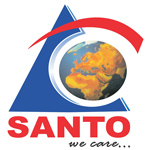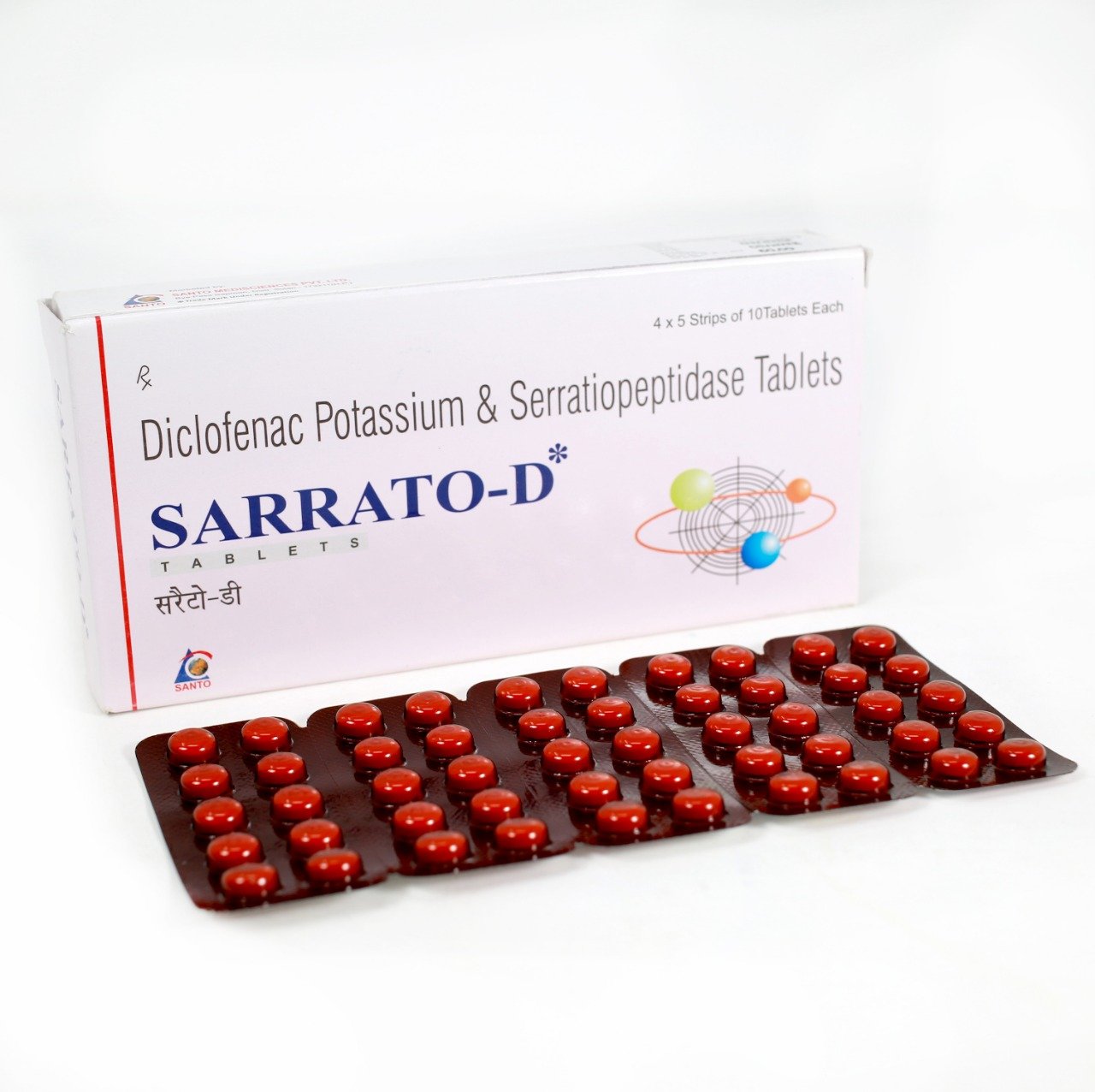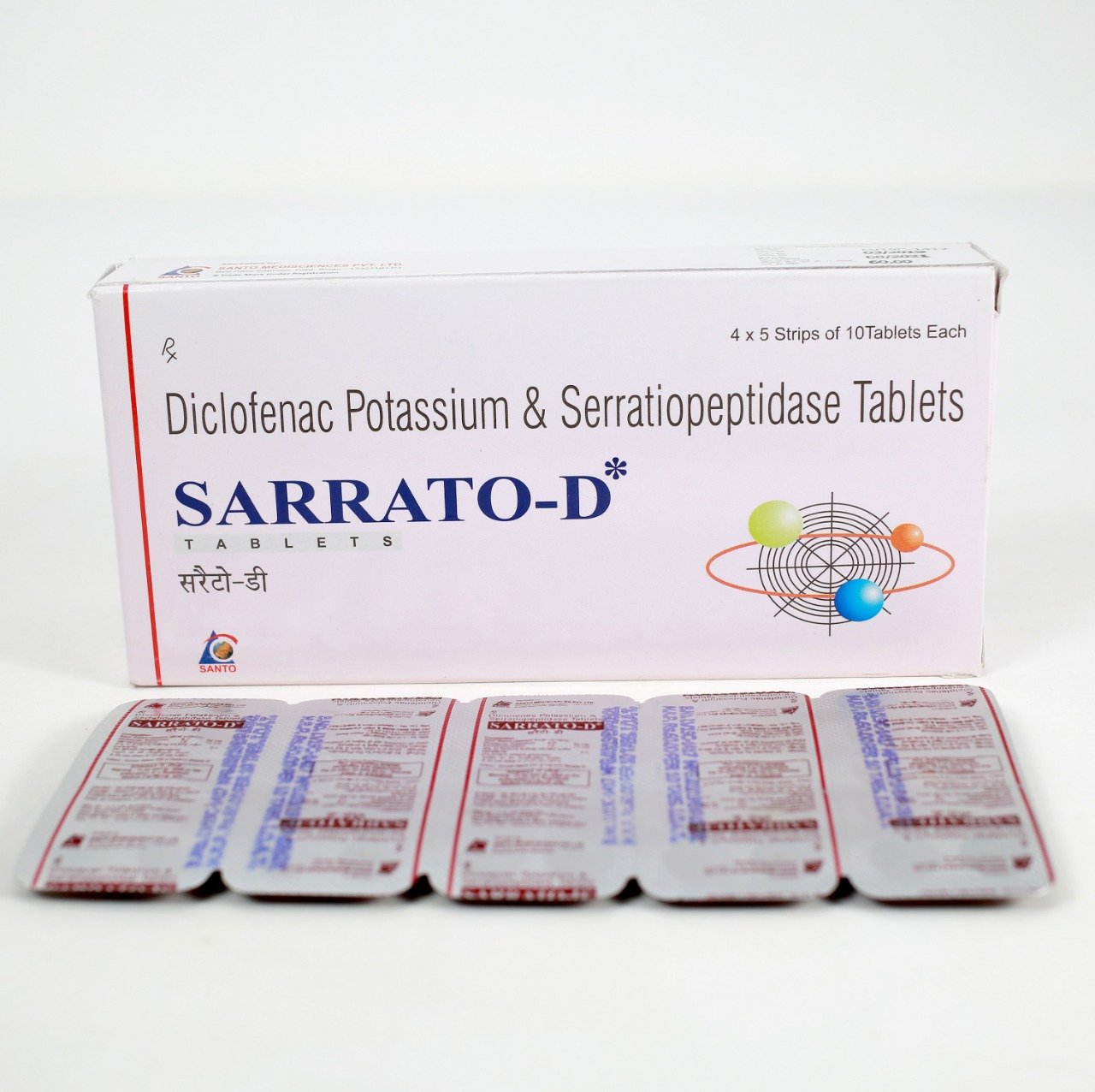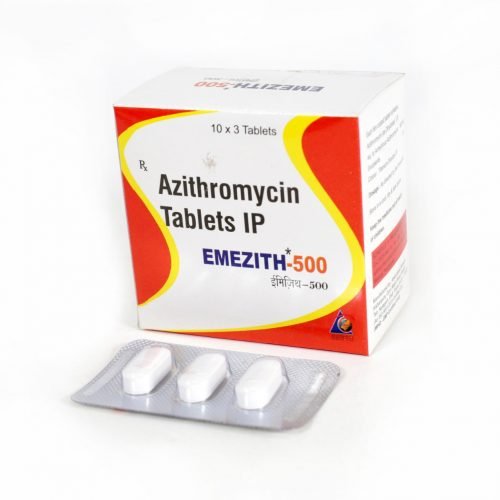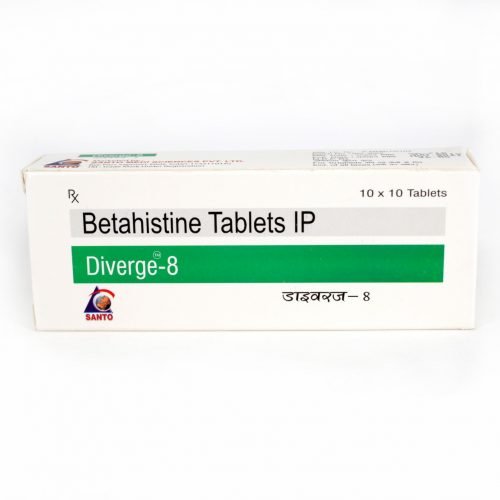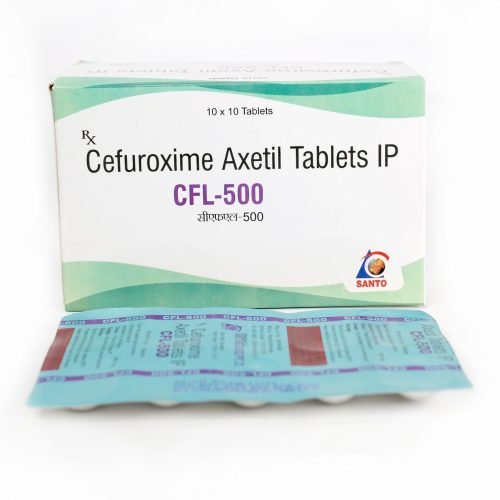- 01792-220191, 09839141955, 06390845955
- SCO No. 2 & 3, Block-B;Office No.-249A; 2nd Floor, Motia Plaza Baddi-173205; Distt. Solan (H.P.)

SARRATO
September 19, 2019
TELMIFOR-40
September 19, 2019SARRATO-D
| Brad Name | Sarrato-D |
| Composition | Diclofenac potassium 50 mg+ Serratiopeptidase10 mg Tablets |
Diclofenac potassium 50 mg + serratiopeptidase 10 mg
Diclofenac is a nonsteroidal anti-inflammatory drug (NSAID). It inhibits the enzyme cyclo-oxygenase and there by inhibits the synthesis of Prostaglandins (PGs). It is more potent against cyclo-oxygenase-2 enzyme as compared to other NSAIDs like Indomethacin, Naproxen etc. It reduces intracellular concentrations of free arachidonic acid in leukocyte by altering its release or uptake.
Serratiopeptidase is an enzyme derived from the bacteria belonging to genus Serratia. This anti-inflammatory proteolytic enzyme bind to the alpha-2-macroglobulin in the blood, which helps to mask its antigenicity. Then it is slowly transferred to the site of inflammation. Serratiopeptidase hydrolyze bradykinin, histamine, serotoxin responsible for oedema.It reduces swelling improves microcirculation and expectoration of sputum. Due to this action Serratiopeptidase has anti-inflammatory, antioedemic and fibrinolytic activity and act rapidly on localized inflammation.
Indications
- Primary dysmenorrheal
- Osteoarthritis
- Rheumatoid arthritis
- Chronic inflammation
- Headache, muscle and joint pain
- Postoperative & traumatic swelling
- Superficial thrombophelbitis
Dosage
One tablet three times daily
Contraindications
Contraindicated in patients with active GI bleeding or perforations, asthma, renal or hepatic disorders, hypertension, porphyria, peri-operative pain in CABG surgery patientsand bleeding disorders.
Precautions
- History of GI ulceration; impaired cardiac, renal or hepatic function; hypertension; lactation
- Monitor LFTs in patients on prolonged therapy
- May prolong bleeding time; caution when used in patients with coagulation disorders or on anticoagulants
- Prolonged therapy may increase risk of anaemia
- 1st and 2nd trimester of pregnancy
- Elderly, debilitated patients
Side effects
Epigastric pain, nausea, headache, dizziness, rashes, Gastric ulceration, bleeding are less common. Reversible elevation of serum aminotransferase can occur kidney damage in rare, Anorexia, Gastric discomfort, hypersensitivity
Drug interaction
Diclofenac potassium and serratiopeptidase should not be taken concomitantly with other NSAIDs, anticoagulants including low-dose heparin, sucralfate, triamterene, cyclosporine, cholestyramine, colestipol, digoxin, aspirin, methotrexate and lithium It should be taken with food. Take this drug immediately after meals to avoid GI disturbances
